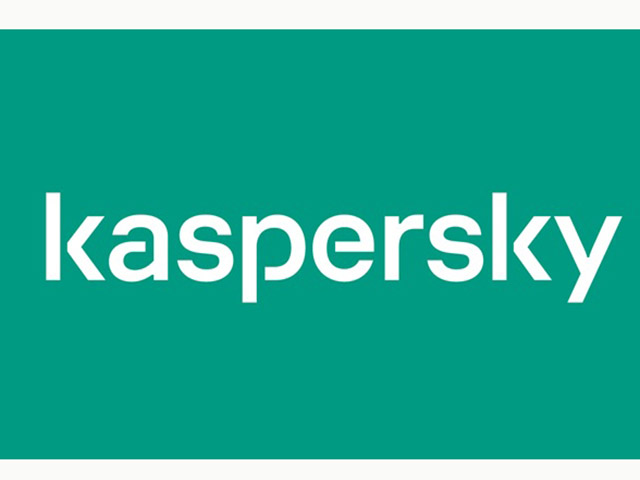Kaspersky further enhances privacy protection for PC users with new features
By Staff Writer 25 August 2020 | Categories: news
Kaspersky has enhanced the protection of users’ personal information on PCs by introducing several new features to its consumer products and developing Kaspersky Security Cloud to adapt to its users’ needs. The company notes its Account Check feature now automatically checks if email addresses that customers use when logging into their online accounts have been compromised. Additionally, Kaspersky Anti-Virus, Kaspersky Internet Security, and Kaspersky Total Security are now equipped with the advanced ability to detect stalkerware - a commercially available software used to spy remotely on a PC user.
Furthermore, Kaspersky Password Manager can now be installed with Kaspersky’s Anti-Virus, Internet Security, Total Security, and Security Cloud products to keep user credentials organised and under control.
According to a recent Kaspersky report - Defending digital privacy: taking personal protection to the next level - a third (35%) of South African consumers have faced incidents where their private information was accessed by someone who did not have their consent. These stats highlight the need to keep and store personal information more securely and therefore having the right attitude towards how personal data is protected.
Moreover, the problem of protecting privacy is further aggravated by the existence of stalkerware, special software that uses hidden functions that are quite difficult to identify. One example of this type of software is designed to secretly run on a victim’s device. As stalkerware is designed to harvest all kinds of data, no matter what type of device a victim of stalker is using, it isn’t just a problem for mobile devices, but PC users as well. In fact, the number of users that encountered stalkerware on a PC grew by 35% to reach over 37,000 in 2019, while spyware tools accounted for 26,620 of those targeted.
To strengthen privacy on personal computers, Kaspersky has introduced several new features for PC users in its consumer products. In particular, Kaspersky has enhanced the Account Check feature within Kaspersky Security Cloud for Windows. The feature now auto-checks email addresses entered when logging into online accounts. This means users can save time as they do not need to manually input the email addresses they want to be checked by the service. Plus, users now have the option to add individual email addresses to a list that is checked regularly by the feature.
As for the new generation of the company’s traditional consumer products, which include Kaspersky Anti-Virus, Kaspersky Internet Security and Kaspersky Total Security, Kaspersky has improved detection to eliminate intrusive technology, such as stalkerware*, on PCs. The feature sends a notification to a user to warn them that stalkerware has been detected on their device and allows the user to either remove the identified software, ignore it or add it to their excluded list of trusted applications. This new feature for Windows supports last year’s release, when Kaspersky started to flag commercial spyware with a specific alert that warns users of the dangers stalkerware poses on Android devices.

Furthermore, to ensure credentials kept on Windows remain safe, a free edition of Kaspersky Password Manager now comes with Kaspersky Anti-Virus and Kaspersky Internet Security products. Users who purchase Kaspersky Security Cloud and Kaspersky Total Security will be able to install the premium version of Kaspersky Password Manager.
“Despite the popularity of mobile devices, we see a high demand among consumers to protect personal information they store on computers – so it is crucial to secure it properly. For this reason and in response to numerous requests from our users, we have added advanced detection of commercially available spyware – known as stalkerware – to PCs. Furthermore, the Account Check feature within Kaspersky Security Cloud on mobile devices has recently found 85% of users’ emails were in the public domain. This underlines the risks of private data being compromised online, so we have updated a feature on Windows to now automatically check if users’ email addresses could be used to access their accounts without their knowledge. We have also extended privacy protection within our basic products – Kaspersky Anti-Virus and Kaspersky Internet Security – with a free version of Kaspersky Password Manager, allowing everyone to secure up to 15 entries in an encrypted vault. While online activity brings new opportunities, we provide the services to ensure every detail that can be found in your personal information is safeguarded and our solutions prevent it from falling into the wrong hands,” comments Marina Titova, Head of Consumer Product Marketing at Kaspersky.
There are two editions of Kaspersky Security Cloud available for customers: Personal and Family. While the Personal edition provides protection modern users’ everyday needs, the Family edition adds a Parental Control feature and remote management tools to provide protection for the whole family.
More information about the updated version of Kaspersky Security Cloud can be found here.
To get more information about the new generation of Kaspersky’s consumer traditional product line, visit the official website here.
Reference:
* One of legal types of spyware used to spy on children, colleagues or relatives. Promoted as parental control tools, these apps, however, have a much broader scope of application. Stalkerware is installed without the device owner’s consent to secretly stream the victim’s personal info – images, videos, correspondence, and geolocation data – to a command server. This carries the danger of personal information being misused by third parties.
Most Read Articles

Have Your Say
What new tech or developments are you most anticipating this year?



